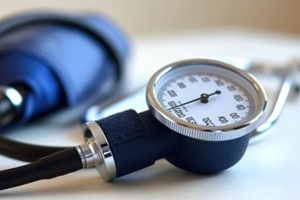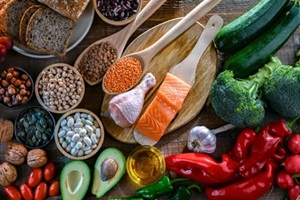 Over 122 million American adults currently have high blood pressure, a chronic condition also called hypertension that can quietly damage arteries, organs, and your quality of life when left uncontrolled. Consistently making informed nutrition choices is a powerful tool in blood pressure management.
Over 122 million American adults currently have high blood pressure, a chronic condition also called hypertension that can quietly damage arteries, organs, and your quality of life when left uncontrolled. Consistently making informed nutrition choices is a powerful tool in blood pressure management.
What Nutrients Help Reduce Blood Pressure?
Certain nutrients directly impact blood pressure levels and can be incorporated into any eating plan. Potassium, calcium, magnesium, protein, and fiber all contribute to better readings.
Increase Potassium
Potassium works intricately with sodium in the body to help relax blood vessels. When vessels stay narrowed from inadequate potassium, it forces the heart to pump harder to move blood, increasing pressure. Adults need about 4,700 milligrams of potassium per day, found abundantly in fruits, vegetables, yogurt, beans, lentils, salmon, and nuts.
Up Calcium and Magnesium
Getting enough calcium and magnesium helps with smooth contractions in the heart. Calcium also helps blood vessels expand and contract properly to keep blood moving efficiently.
Adults should consume 1,000-1,300 milligrams of calcium and 310-420 milligrams of magnesium per day from foods such as low-fat dairy, fortified plant milks, dark leafy greens, nuts, and seeds.
Eat More Fiber
Soluble fiber soaks up excess cholesterol before it contributes to plaque in arteries, a precursor to high blood pressure. Beans, oats, barley, fruits, and vegetables supply ample fiber that benefits heart health and blood pressure. Strive for 25-38 grams of fiber per day.
Pick Lean Proteins
Beef, poultry, fish, eggs, nuts, seeds, and legumes provide the protein needed for growth and repair of blood vessels and heart muscle. However, too much saturated fat and cholesterol from fatty red meats and full-fat dairy can raise risks. Emphasize plant and lean animal proteins.
Healthy Fats Lower Readings
Monounsaturated and polyunsaturated fats found abundantly in olive oil, avocados, nuts, seeds, and fatty fish such as salmon and tuna benefit blood pressure in multiple ways.
They promote “good” HDL cholesterol, relax blood vessels, reduce inflammation, and aid weight loss. Limit saturated fats in meats and full-fat dairy that negatively impact blood lipids.
Specialty Diets Personalized for Blood Pressure Management
Beyond focusing on specific nutrients, certain complete dietary patterns effectively reduce hypertension risks, with the DASH and Mediterranean diets emerging as top contenders recommended by cardiologists and nutritionists alike.
The DASH Diet Plan
 Dietary Approaches to Stop Hypertension (DASH) is a diet plan that provides maximum nutrition for controlling blood pressure through fruits, vegetables, lean proteins, low-fat dairy, nuts, seeds, beans, and whole grain favorites. Followers significantly lower their readings by limiting sweets, sugary drinks, saturated fats, and sodium.
Dietary Approaches to Stop Hypertension (DASH) is a diet plan that provides maximum nutrition for controlling blood pressure through fruits, vegetables, lean proteins, low-fat dairy, nuts, seeds, beans, and whole grain favorites. Followers significantly lower their readings by limiting sweets, sugary drinks, saturated fats, and sodium.
A Premier’s Study found participants reduced their top systolic pressure number by 4.3 mmHg and bottom diastolic number by 2.6 mmHg.
Another study found that going on the DASH diet helped participants reduce systolic numbers by an average of 11.4 mmHg and diastolic numbers by 5.5 mmHg versus the control group.
The Mediterranean Route
A Mediterranean dietary pattern emphasizes produce, whole grains, olive oil, fatty fish, nuts, seeds, lean poultry, beans, herbs, and spices.
It limits sugars, refined carbohydrates, and red meat. Abundant nutrients, fiber, and plant compounds called flavonoids promote lower blood pressure levels through their anti-inflammatory and blood vessel relaxation effects.
In the famous PREDIMED study, individuals with high cardiovascular risk saw significant drops in both systolic and diastolic readings, an average of 5.9 and 3.8 points, respectively, after less than five years of eating a Mediterranean-style diet. That’s comparable to taking blood pressure medication.
Other Dietary Approaches
Beyond DASH and Mediterranean plans, vegetarian, low-sodium, and portfolio diets also cater to improving heart health. A portfolio diet incorporates nuts, plant sterols, soy proteins, and soluble fiber. Talk to your doctor about these options if the above diets seem difficult to sustain long-term given your preferences and lifestyle to find the best fit.
Nutrition Supplements Shown to Lower Readings
Certain vitamins, minerals, and other compounds available in supplement form may also benefit blood pressure control. Always consult your physician before adding supplements to medication regimens to guarantee safety and efficacy. Top options include:
- Potassium
- Magnesium
- Calcium
- Vitamin C
- Vitamin D
- Omega-3 fatty acids from fish oil
- Flavonoids
- Garlic
- Beetroot juice
- Dark chocolate
As explained earlier, potassium, magnesium, calcium, and vitamin D are essential in blood pressure regulation. Yet many adults are deficient in one or more of these due to poor diets. Vitamin C, omega-3s, flavonoids, and compounds found in garlic and beetroot improve blood vessel elasticity and promote artery dilation to reduce pressure.
 Again, check with your doctor before taking any supplement, especially if you’re also taking medication, and never exceed the recommended dosages. While these can complement your nutrition efforts, they should not replace whole foods that supply vitamins, minerals, and nutrients most efficiently.
Again, check with your doctor before taking any supplement, especially if you’re also taking medication, and never exceed the recommended dosages. While these can complement your nutrition efforts, they should not replace whole foods that supply vitamins, minerals, and nutrients most efficiently.
Schedule a Blood Pressure Management Appointment in Durham, NC Today
Imperial Center Family Medicine’s healthcare providers draw from extensive medical expertise to create highly personalized nutrition and lifestyle plans to improve your blood pressure management.
We not only get your levels stabilized in the short term but also instill the knowledge and tools so you can confidently manage your health in the long run. Contact us today at 919-873-4437 or online to schedule a consultation.
